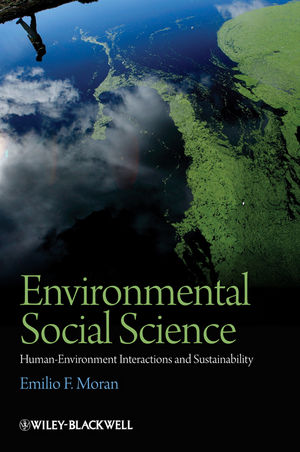Environmental Social Science: Human - Environment interactions and SustainabilityISBN: 978-1-4051-0573-6
Hardcover
232 pages
February 2010, Wiley-Blackwell
 This is a Print-on-Demand title. It will be printed specifically to fill your order. Please allow an additional 15-20 days delivery time. The book is not returnable.
Other Available Formats: Paperback
|
||||||
"Thanks to its capacity of surfing across natural and social sciences, Moran's work will at minimum help scholars from both sides to create bridges across the gap that still separates them; something that can already be seen as a non-trivial result." (Journal of Artificial Societies and Social Simulation, July 2010)
“This transformative book addresses the foundational theories and methods essential to both social and biophysical fields in human-environment research, promoting familiarity with -- and accessibility to -- research crossing traditional disciplinary bounds. Destined to become a key text within coupled human-natural systems research by exploring the complex problems that our environment faces, this book underscores that those challenges can be successfully addressed only through interdisciplinary research teams; this work will be an integral component of educating future interdisciplinary researchers.”—Jane Southworth, University of Florida
"In the nick of time at the dawn of the era of great
environmental challenge: a work that encompasses the full array of
relevant sciences...fundamental to lasting solutions"
—Thomas E. Lovejoy, The Heinz Center for Science,
Economics and the Environment
“Professor Moran gives scientists the tools to attack the
most critical environmental challenges – those involving the
relations between people and the environment"
—David E. Blockstein, National Council for Science and the
Environment
"The book fills an incredibly important gap. Emilio Moran
provides a remarkably comprehensive coverage of the fundamental
science that underpins the analysis of coupled human-environment
systems. It's a must read for researchers working in the emerging
field of sustainability science."
—Pamela Matson, Stanford University
"A superb overview of the emerging field of sustainability
science. Readers will enjoy his clear writing, engaging examples
and effective answers to real-world problems."
—Ben Orlove, University of California, Davis



